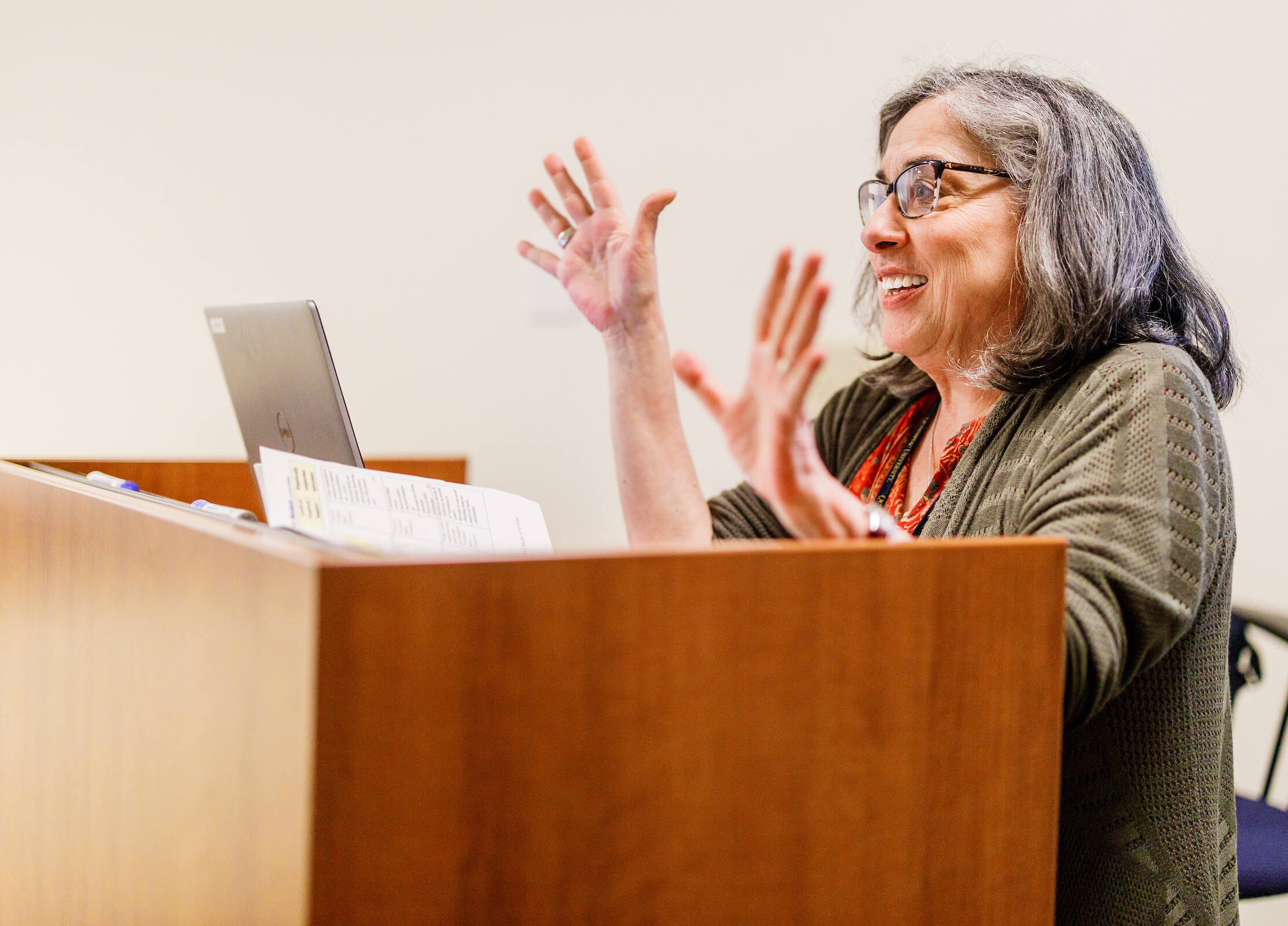
Professor develops legacy of facilitating ways for students, community to grow together
July 15, 2021

July 15, 2021

As director of field education for the master in social work program, Mutrie helps students find 1,000 hours of meaningful field work during their two years at Quinnipiac.
Mutrie, a clinical assistant professor of social work, joined the School of Health Sciences faculty in 2013 after a career dedicated to improving the lives of children and families.
Before Quinnipiac, she directed a clinic at the Lower Naugatuck Valley Parent Child Resource Center in Derby, Connecticut. The majority of her clients faced major barriers and marginalization due to such factors as home environment, racism, neglect and abuse, and attachment issues.
“I did a lot of crisis intervention, trying to help them manage trauma,” she said.
Many of the children she served came with labels attached.
“We sometimes give kids these big diagnoses that don’t really reflect their lived experience and maybe cause them to have futures that are not as open because somebody is seeing a label, such as oppositional defiance disorder,” she said.
“I love the idea that if we can help kids and their families cope with things that seem overwhelming, they can go on and be completely OK and well-adjusted and achieve all kinds of things. I think there is such hope in children,” Mutrie added.
She is especially interested in interprofessional work and in exposing social work students to a unique simulation of the pupil planning team process for special education students as part of a collaborative workshop presented with faculty from occupational therapy, physical therapy and education.
This experiential learning activity, sponsored by Quinnipiac’s Center for Interprofessional Healthcare Education, helps students recognize the value of having the team identify the different roles and responsibilities of each member, with the family and student at the center, and how the team works together to meet the best health care and educational outcome for the student.
Mutrie was instrumental in establishing the Lions Low Vision Clinic through the CIHE and the Lion’s Club. In this clinic, students work alongside occupational therapy instructors and Mutrie to complete assessments. Social work students facilitate a support group for people with low vision that brings together clients and their care partners to talk about issues related to their social and emotional well-being, including loss of independence, isolation and depression.
“Whether it’s teaching, placing students in the field, guiding them in career development or answering questions about what it’s like to be a social worker, my favorite part of my job is watching them grow and develop as professionals and serving their needs as best I can,” Mutrie said.
Quinnipiac Today is your source for what's happening throughout #BobcatNation. Sign up for our weekly email newsletter to be among the first to know about news, events and members of our Bobcat family who are making a positive difference in our world.
Sign Up Now